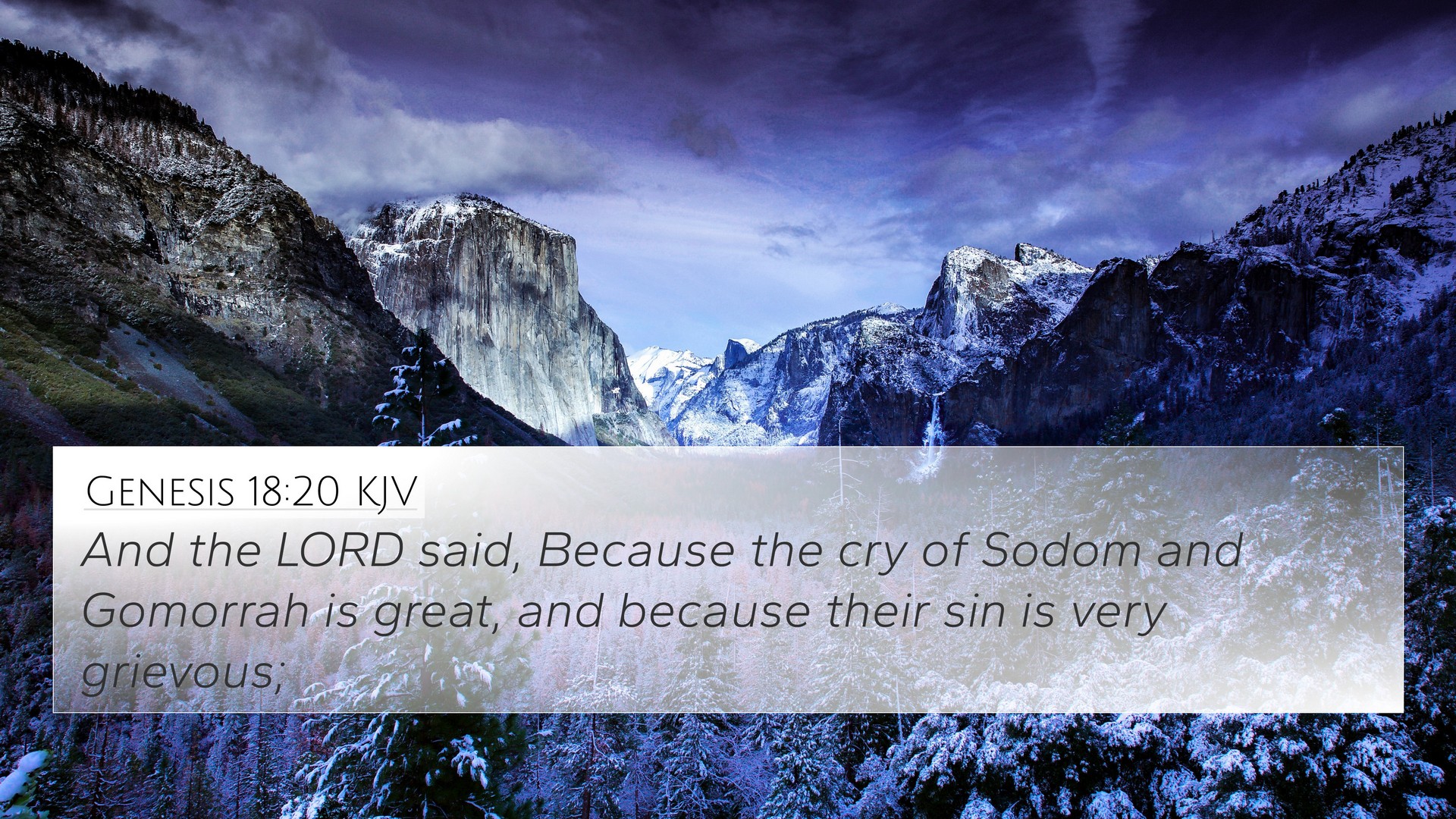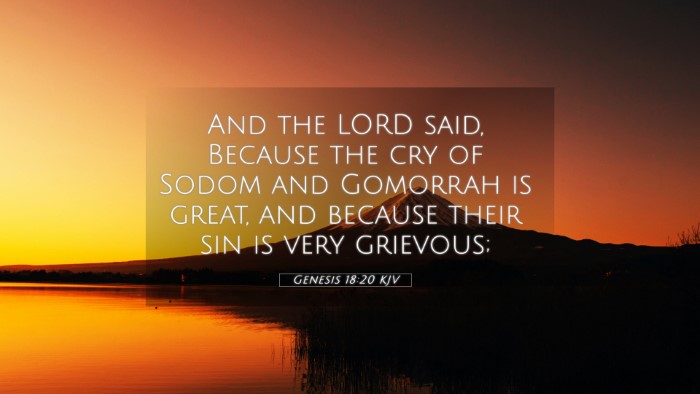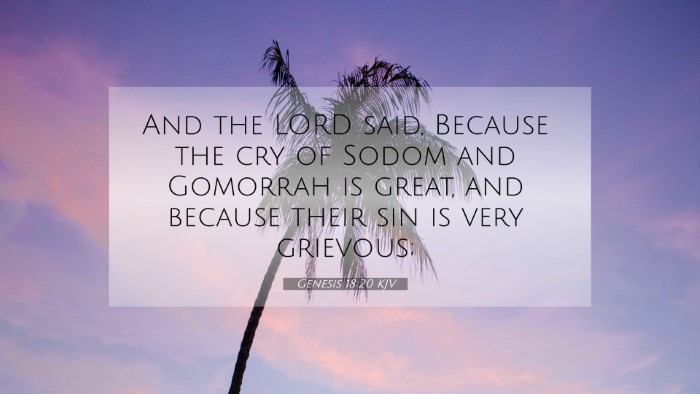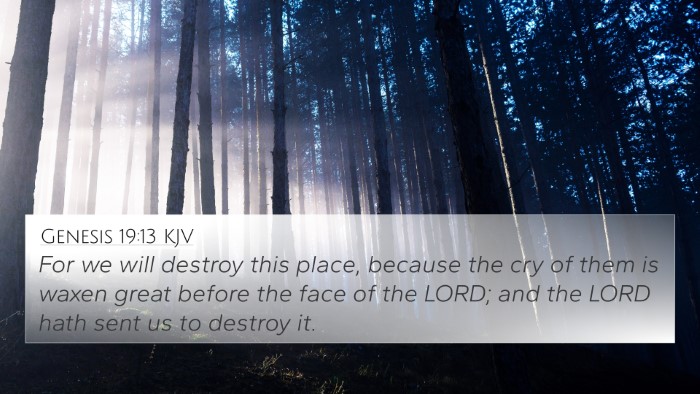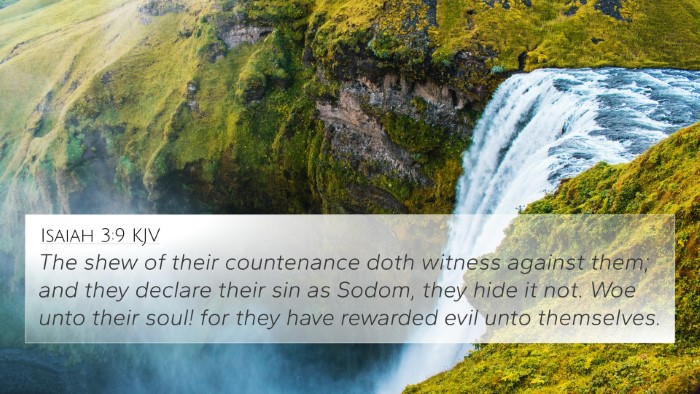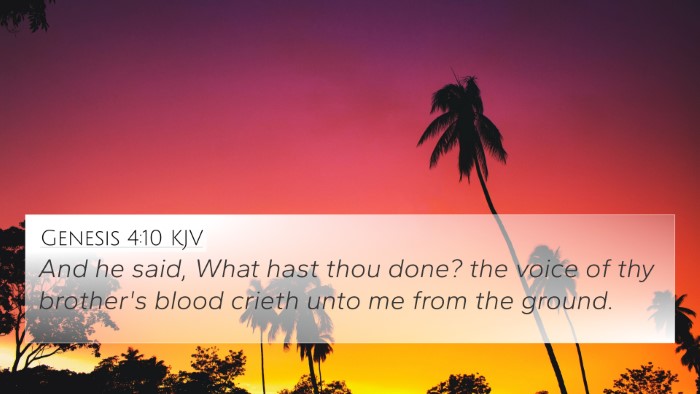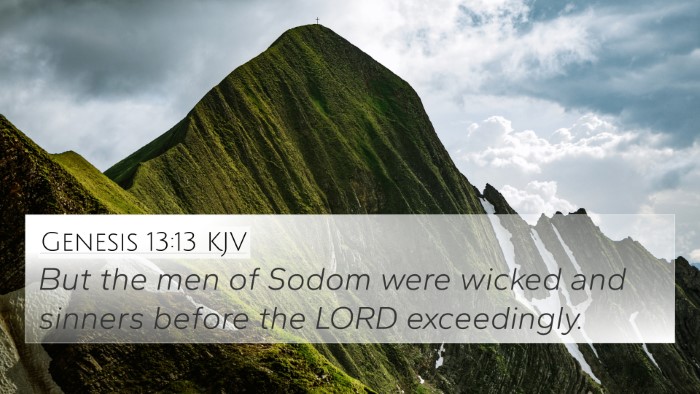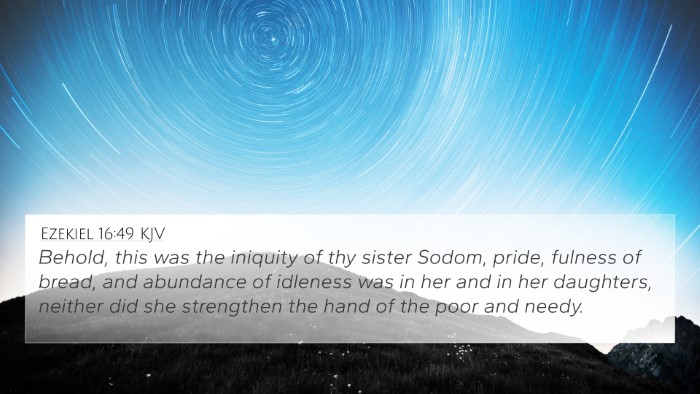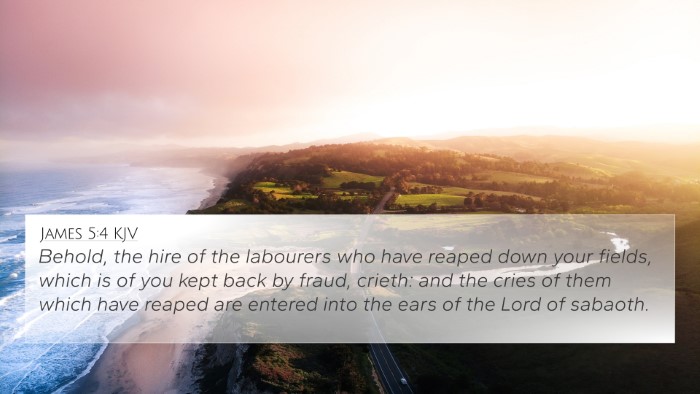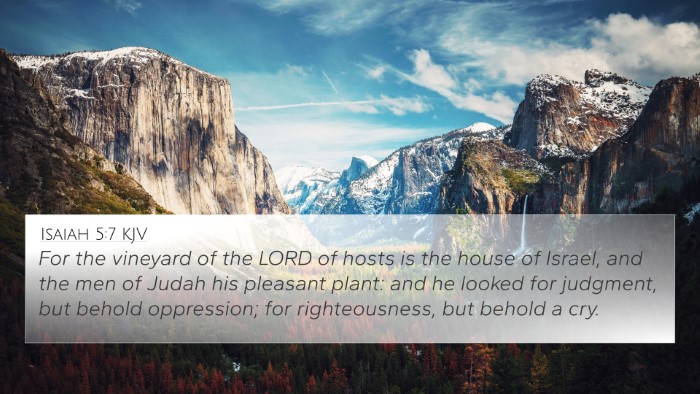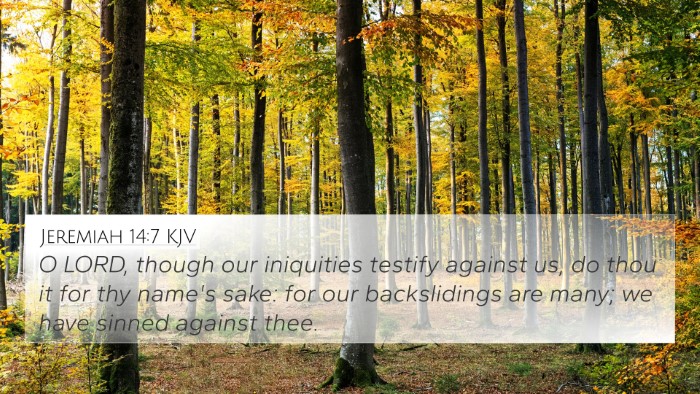Genesis 18:20 - Summary and Analysis
Verse: "And the LORD said, Because the cry of Sodom and Gomorrah is great, and because their sin is very grievous." (Genesis 18:20)
Meaning and Interpretation
This verse serves as the pivotal point in God’s revelation to Abraham concerning the impending judgment on Sodom and Gomorrah. The verse demonstrates divine justice in response to human sinfulness, highlighting God's awareness of the moral decay and the outcry that emerges from it.
Divine Communication
God speaks to Abraham, indicating a personal relationship where divine counsel and revelation are evident. This demonstrates God's desire for relationship with humankind and His willingness to share His plans for judgment.
The Nature of Sin
The "cry" mentioned symbolizes the cumulative effects of sin—both the actions of the people and the consequent suffering of the innocent. The grievousness of sin in Sodom and Gomorrah is underscored, suggesting that their actions have reached a tipping point demanding divine intervention.
Abraham's Intercession
This verse sets the stage for Abraham's intercessory prayer in subsequent verses, illustrating the importance of standing in the gap for others. Abraham’s negotiation with God over the fate of the cities is a model of prayer advocacy and divine mercy.
Public Domain Commentary Insights
- Matthew Henry: Highlights the necessity of God’s judgment as a reflection of His righteousness. Henry emphasizes that God’s patience does not exempt Him from acting when wickedness becomes intolerable.
- Albert Barnes: Reflects on the divine judgment as a natural response to sin, showcasing the moral order that governs the universe. Barnes notes the importance of accountability and the consequences of actions.
- Adam Clarke: Points out the significance of the "cry" and the collective sin of the inhabitants. Clarke highlights that divine warning precedes judgment, showcasing God's mercy in revealing His plans.
Bible Verse Cross-References
The following verses relate to Genesis 18:20, providing further context and understanding:
- Genesis 19:1-5: The account of the angels visiting Sodom and the outcry against its wickedness.
- Deuteronomy 29:23: A reminder of the consequences of sin that lead to divine judgment similar to those seen in Sodom and Gomorrah.
- Ezekiel 16:49-50: A passage that identifies the sins of Sodom, detailing pride, neglect of the needy, and abomination.
- Luke 17:28-30: Jesus' reference to Sodom as a warning of divine judgment and the state of affairs during His second coming.
- Romans 1:18-32: Paul's examination of human sinfulness and God's wrath against all ungodliness, paralleling the themes found in Genesis 18:20.
- 2 Peter 2:6: References Sodom and Gomorrah as an example of divine judgment against the ungodly.
- Jude 1:7: Draws a parallel to the sexual immorality exhibited in Sodom, illustrating the consequences of turning away from God.
Connections between Bible Verses
In biblical studies, cross-referencing provides depth to understanding texts. Here are thematic connections related to Genesis 18:20:
- Thematic Bible Verse Connections: The themes of sin, judgment, and mercy resonate throughout Scripture, and Genesis 18:20 is foundational to these discussions.
- Bible Cross-Reference Guide: Tools for deeper understanding unveil connections between Genesis and the prophetic meaning conveyed in the writings of the New Testament.
- Identifying Connections: Genesis 18:20 foreshadows the eventual destruction of Jerusalem due to similar grievances against God's law, linking Old Testament narratives to prophetic literature.
Conclusion
Genesis 18:20 encapsulates God's divine nature and the requirement of righteousness as He prepares to execute judgment on Sodom and Gomorrah. This verse is a crucial lesson in understanding God’s holiness, the seriousness of sin, the importance of intercession, and the assurance that God is aware of human plight. By studying this scripture alongside related passages, one can grasp the comprehensive view of divine justice and mercy throughout the Bible.
